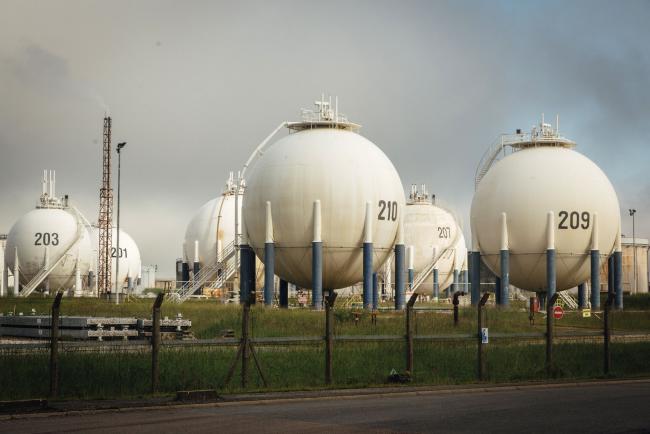(Bloomberg) -- Oil resumed its rally to top $70 a barrel in New York as investors grew more confident that accelerating vaccinations and easing travel restrictions will continue to boost demand.
West Texas Intermediate futures surpassed the $70 mark to close at its highest since Oct. 2018 after briefly touching the key psychological level earlier this week. U.S. oil supplies fell 2.11 million barrels last week, the American Petroleum Institute was said to report. That would be the third straight weekly decline if confirmed by U.S. government data on Wednesday.
At the same time, confidence in the outlook for oil demand continues to grow as accelerating vaccinations allow people to travel more. The Middle Eastern Dubai benchmark is trading in its steepest backwardation -- a market structure that indicates supply tightness -- in almost a year after the region’s physical market had a strong start to the month.
“There’s all sorts of technical models that work off closing prices,” said Bill O’Grady, executive vice president at Confluence Investment Management in St. Louis. “Any time you have a close above a number divisible by 5, it tends to be pretty significant” in attracting flows such as those from commodity trading advisors.
Prices retreated from session highs after settlement, with the API report also showing sizable weekly increases in both gasoline and distillate inventories.
Still, the path toward normal travel behaviors in the world’s largest oil-consuming country has provided support to the market as it takes on new multi-year highs. The U.S. State Department eased its travel warnings for nations around the world, including France, Canada and Germany, which could pave the way for loosening airline restrictions for trips overseas.
“The fundamental outlook for crude is bullish right now,” said Edward Moya, senior market analyst at Oanda Corp. “The easing of travel restrictions will be a game-changer for the international air travel outlook, which is the last part of the equation for a robust demand recovery.”
WTI posted its narrowest discount against Brent since November following a similar run up last month. With the narrowness in the spread persisting, U.S. exports may see a dip as WTI loses competitiveness.
Meanwhile, American shale oil production is poised to rise only moderately through 2022, even though gains in crude prices have triggered a pickup in drilling, according to BloombergNEF. That comes as the Energy Information Administration trimmed its shale output forecasts for next year, according to a monthly report.
©2021 Bloomberg L.P.
